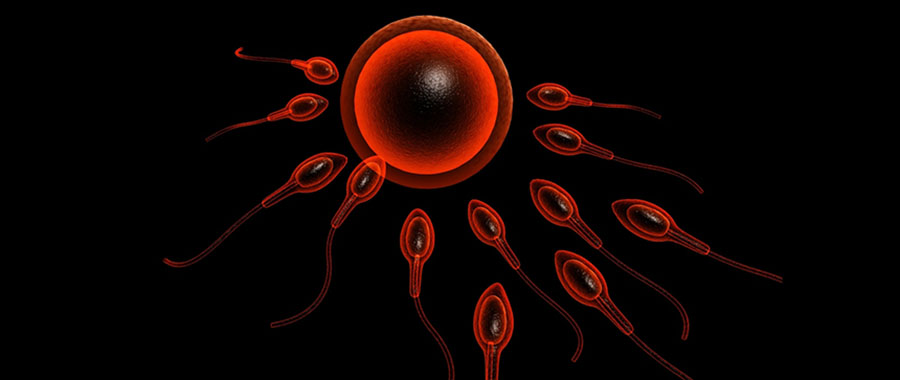
Infertility is one of the biggest fears among couples as it could mean so many years of unsuccessfully trying to have children. While previously thought of as a problem that faced only by women, medical research has proven otherwise. Male infertility is an issue that faces an average of 1 out of every 30 men of the total population. As a matter of fact, it has been found out that for every 30%of infertile couples, the issue can be solely attributed to male infertility. Male infertility has for so long been misunderstood by so many, with most couples facing a level of stigmatization, in turn completely losing hope in ever having children.
What is male infertility?
While most couples find it fairly easy to get children, for others, it isn’t a walk in the park. Most people may think that a man’s fertility is measured by his libido, which is a totally misunderstood notion; it is actually determined by the quality and quantity of his sperm. Male infertility can be described as, when the number of sperm ejaculated by a man is low, or if the quality of the same is poor. This makes it difficult or even impossible for the sperm to reach or even fertilize the egg, thus the inability to cause a successful pregnancy.
Stages involved in male infertility treatment
In the past, men with infertility had close to no options when it came to diagnosis and even treatment of male infertility. Unlike in the recent years where there was limited information about causes and solutions to male infertility, nowadays, there are better research, testing, diagnosis and treatment facilities and technologies such as Assisted Reproductive Technology (ART) and In Vitro Fertilization (IVF) treatment, making it easier to solve such issues. Treatment of male infertility follows a specific protocol to ensure that the probability of the man’s ability to successfully make a woman pregnant greatly increases.
Infertility Evaluation
Most couples discover the issue of infertility after one year of not having children. At this point, a thorough evaluation is necessary. The female partner is advised to visit the gynaecologist for an infertility evaluation while the male partner will be required to have a semen analysis done. It should be noted that male infertility should never be ruled until tests or an evaluation has been made on both partners. It helps to get a second opinion from another reliable reproductive health expert for the sake of accuracy.
Determination of Male Infertility Causes
During the medical examination and evaluation, it is essential that the main cause of the male infertility be determined so as to aid in choosing the right treatment option. The tests taken should be able to determine whether infertility is caused by sperm production problems such as genetic issues, infections, torsion, varicocele and others, or whether it is as a result of blockage of sperm transport. Other issues that may cause male infertility include retrograde, premature or failure of ejaculation, erectile dysfunction, damaged nerves, hormonal problems and injuries among others.
Choosing Suitable Treatment Options
Depending on the cause and severity of male infertility, the gynaecologist or fertility expert will be able to come up with the most suitable treatment options. Male infertility treatment ranges from hormonal therapy and medication, to surgery. Along with these, the couple may be advised to consider incorporating In-Vitro Fertilization or Intrauterine Insemination to ensure successful extraction of sperms, fertilization, conception, implantation and pregnancy. At times, it may be impossible for the male partner’s sperms to fertilize the woman’s egg, and the couple may have to consider finding a sperm donor at this point.
Whom will male infertility treatment benefit?
Male infertility treatment has come as a relief for most men who previously had trouble having children. This kind of treatment is advised for men who have been unsuccessful in getting their female partners pregnant after at least a year of frequently having unprotected sex. Most men who benefit from male infertility treatment include those suffering from the following conditions.
- Hormonal diseases (hypogonadotrophic hypogonadism )
- Premature ejaculation
- Erectile dysfunction
- Low sperm count
- Poor quality of sperm
- Seminal fluid that is too thick
- Blockages of the sperm delivery
These are just but a few of the problems that can be solved by male infertility treatment. Things that you may look for are correct diagnosis of the problem, expert analysis and appropriate treatment suggestions, supported with technology to aid in the treatment process. After careful research, you should choose a reliable and trusted fertility expert who will help you decide the best male infertility treatment option that fits your budget and personal needs.
Why Us
As medical professionals with great expertise in male reproductive health, we understand just how frustrating and discouraging it can be for men suffering from male infertility. When you visit our clinic, we will offer you male infertility consultation and you will be subjected to extensive tests to determine exactly where the issue lies. Our highly experienced doctors and infertility specialists will then set up the perfect treatment plan for you. We also have a sexual therapist and counsellor to help make the whole experience easier for you.
At Shrikhande hospital & ivf research centre, our main goals when offering our patients male infertility treatment include determining the cause of infertility, the best treatment options and the best way to manage male infertility. This, in turn, makes it possible for previously hopeless couples to have children of their own.




 (+91) 880 557 7600
(+91) 880 557 7600
 Abhyankar Road, Dhantoli, NAGPUR-12
Abhyankar Road, Dhantoli, NAGPUR-12





